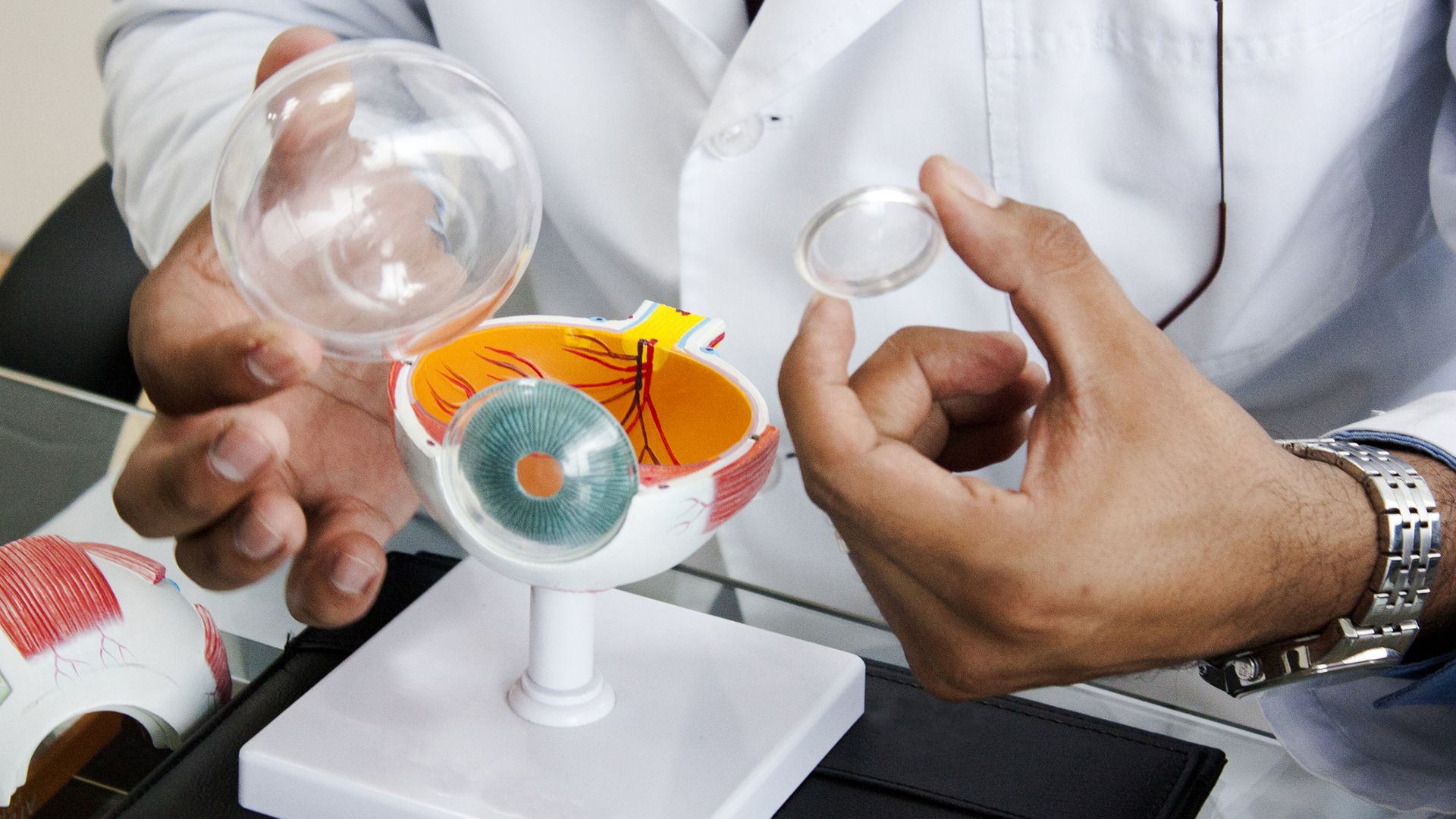As the name implies, age is one of the main risk factors for age-related macular degeneration (AMD). The condition most often occurs in people who are older than age 60.
Another risk factor for AMD is cardiovascular disease.
Cardiovascular disease refers to a group of conditions that affect the heart and blood vessels. It is also known as heart disease and heart and blood vessel disease. Atherosclerosis (a buildup of plaque in the arteries), heart attack, heart failure, stroke, and abnormal heart rhythms (arrhythmia) are all examples of cardiovascular disease.
Here, we look at what we know and don’t know about the relationship between cardiovascular disease and AMD.
How does cardiovascular disease affect the eyes?
Cardiovascular disease affects blood vessels throughout the body—including blood vessels in the eyes. In other words, when blood isn’t flowing normally through the body, it is not flowing normally through the eyes. Plaque can also block the tiny arteries that supply the eyes with blood.
Like every other organ in the body, the eyes rely on a steady and controlled flow of blood to supply them with oxygen. Impaired blood flow to the eyes is considered a contributing factor to wet age-related macular degeneration (wet AMD), an advanced form of AMD.
When a person has wet AMD, abnormal blood vessels begin to grow inside the eye—specifically, inside the macula, a layer of light-sensitive cells in the back of the eyeball.
These abnormal blood vessels leak blood and fluids into the eye, which causes damage to the eye’s delicate internal structures. Vision can deteriorate rapidly, causing a loss of central vision, which affects a person’s ability to read, see faces, drive, and perform many more everyday tasks.
The growth of abnormal blood vessels is thought to occur—at least in part—in response to reduced blood flow. In other words, the eyes are not receiving enough blood, the body attempts to grow more blood vessels to compensate, but the blood vessels do not work correctly. (Keep in mind that this is a simplified explanation of a complex process that is not fully understood.)
Treatment for wet AMD often involves injections of medications that block VEGF (vascular endothelial growth factor), a protein that promotes the growth of new blood vessels. Blocking this protein helps stop the bleeding in the eye.
For anyone considering this therapy, the injections are painless and only take a few seconds. And they can stabilize—and in some cases improve—your vision.
Is AMD a risk factor for heart disease?
There is research to suggest that having AMD puts a person at greater risk of cardiovascular problems. For example, a July 2021 study published in the Journal of the American Heart Association found that people with AMD were at a greater risk of heart failure, a condition where the heart no longer pumps blood as well as it should.
Other research has been less conclusive about the increased risk of cardiovascular disease among people with AMD. But even that research supported another important finding—that having AMD is associated with shorter lifespans and earlier death.
It is also well-established that cardiovascular disease and eye diseases share a number of risk factors—including high blood pressure, smoking, type 2 diabetes, and obesity.
Eye health and overall health
While AMD is an eye disorder and requires treatment from an ophthalmologist, it is also important to remember that the health of the eyes is often an indicator of other serious health conditions. In addition to working with an ophthalmologist, it is important to see your primary care provider to monitor for other health conditions and help reduce risk factors.
It’s also worth noting that cardiovascular diseases are the number one cause of death worldwide. Cardiovascular health is something that everyone should pay attention to, whether they have AMD or not.






